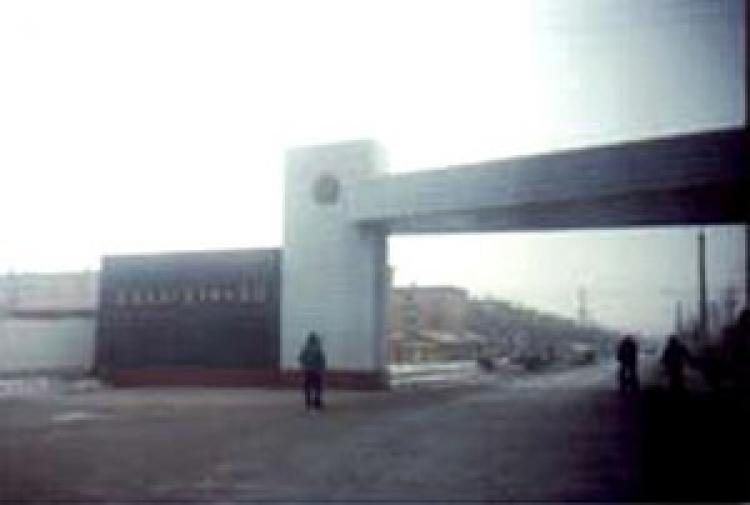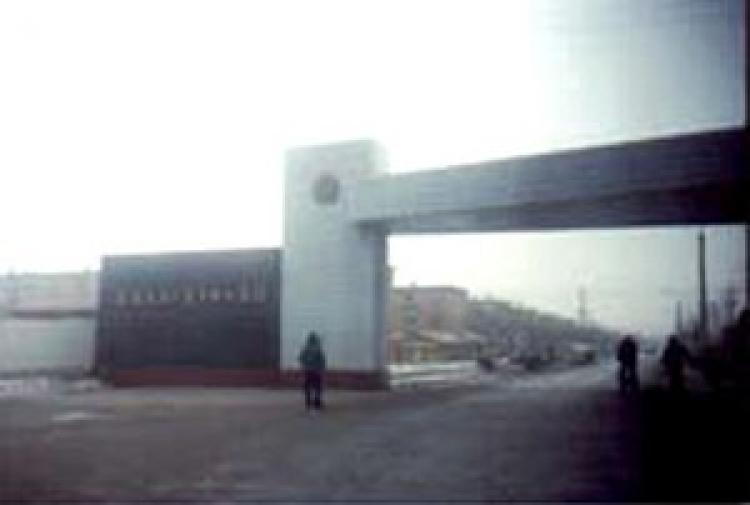Dreams of constitutionalism have rekindled a power struggle in the Chinese Communist Party. Party head Xi Jinping has begun his term in office by fighting against those most opposed to having laws rule China. In the back and forth, Xi’s administration has gone beyond rhetoric to a specific promise: it will stop the noxious labor camp system in China.
The action began on Dec. 4 when Xi gave a speech on the occasion of the 30th anniversary of the adoption of China’s constitution in which he pledged to implement the rule of law in China. The speech was one of Xi’s first actions following his installation as Party chief on Nov. 14.
“No organization or individual has the privilege to overstep the Constitution and the law, and any violation of the Constitution and the law must be investigated,” Xi said.
Would be reformers sought to answer Xi’s call for government by law.
The editors of the liberal Southern Weekly intended to publish a New Year’s message titled “China’s Dream and the Dream of Constitutionalism.” The head of the Guangdong Province Propaganda Department stepped in and rewrote the editorial, turning it into a praise of the Party.
The pro-reform Yanhuang Chunqiu magazine published a New Year’s issue on constitutionalism and on Jan. 4 its website was shut down without comment by the Ministry of Industry and Information Technology.
Bloggers, law professors, and activists seized on the phrase “dream of constitutionalism,” but as soon as the term became hot, it was blocked on the popular Twitter-like service Weibo.
It appeared that reactionary cadres wanted to nip any talk of constitutionalism in the bud.
Xi Jinping then pushed back.
At noon on Jan 7, the head reporter in Zhejiang Province for the state-owned newspaper Legal Daily posted on his Weibo account that the new head of the Political and Legal Affairs Committee (PLAC), Meng Jianzhu, had announced in a national teleconference with regime officials that the reform through labor system would be stopped. Then a reporter for the mainland-based business magazine Caixin got confirmation of Meng’s announcement from an official who had attended the meeting.
On the same day, Xi Jinping made a speech to a PLAC conference that included the theme of constitutionalism. As Chinese regime mouthpiece Xinhua reported, Xi said, “Push forward with full force to realize a peaceful China and a China under the rule of law.”
Camps and the PLAC
Any hope for the rule of law in China must address the reform through labor system and its corrupt connections with the PLAC, the Party organ that runs China’s vast domestic security apparatus, including the police, armed police, procuratorate, and all courts.
The labor camp system violates the People Republic of China’s Constitution, laws, and administrative statutes, as well as the International Covenant of Civil and Political Rights, which was signed by the Chinese regime.
Shi Zangshan, a Washington, D.C.-based China expert, has said the labor camp system is the core of the PLAC and also an apparatus for enriching PLAC officials.
Many Chinese would rather be sentenced by a court than be sent to a labor camp, as there is no mechanism of appeal in the labor camp system except by going through the labor camp committee. There is also no legal oversight or regulatory body.
To get a labor camp sentence repealed, one can only settle things by paying bribes, and according to news reports, the heads of the PLAC have profited hugely from the labor camp system in the past ten years.
The labor camps are also a human rights nightmare.
Labor camp inmates’ wages, according to internal sources, are 150 times lower than those of the average workers in China, while the amount of work required is 2-3 times greater.
Just after Christmas U.S. media reported on a note from a labor camp inmate, hidden in a Halloween set made in China and discovered by an Oregon woman.
The note was from the Masanjia Labor Camp in Liaoning Province. It said that inmates have to work 15 hours a day, seven days a week, without any kind of break. People who refuse to work are subjected to torture, beatings, and verbal abuse. There is almost no pay, just 10 yuan a month (US$1.6).
The profits from operations like this are carved up by police and PLAC officials.
The people who are unlawfully sent to forced labor camps include farmers who object to their land being taken by their local governments, all kinds of petitioners, college students who post articles online about democracy and freedom of speech, and, most prominently, large numbers of Falun Gong practitioners who speak out about how they have been persecuted.
Since Jiang Zemin launched the persecution of Falun Gong in July 1999, millions of Falun Gong practitioners have been held in labor camps.
According to the official numbers, 160,000 people are currently held in 350 labor camps. However, some NGOs estimate that as many as 1,000,000 people are detained in the camps today. According to some observers, one-half of those in the camps are Falun Gong.
Due to policies Jiang laid down, police in the labor camps torture practitioners with impunity—practitioners have described over 100 torture methods used on them in the camps.
Not fearing being held accountable for their actions, the police make money by helping supply organs to China’s transplantation industry, mainly by taking them from Falun Gong practitioners, killing the practitioners in the process.
Admitting Wrongdoing
By announcing the end of the reform through labor system, Xi aims to neutralize the PLAC, the residual influence of former PLAC head and Jiang loyalist Zhou Yongkang, and even the continued pretensions of Jiang Zemin himself to power.
Ending the labor camp system is akin to admitting that it was wrong, and that the crimes committed in the camps were wrong. It is not a big step from stopping the system to punishing those responsible. This terrifies Jiang Zemin, Zhou Yongkang, longtime Jiang fixer Zeng Qinghong, and PLAC officials at all levels who are involved in the persecution.
Xi Jingping’s sudden announcement about putting a stop to the labor camp system will intensify the power struggle between Xi’s supporters and the Jiang faction.
However, once Xi has made such a high-profile statement, he cannot retreat without losing power. Moving forward is now his only choice.
Read the original Chinese article.
Click www.ept.ms/ccp-crisis to read about the most recent developments in the ongoing crisis within the Chinese communist regime. In this special topic, we provide readers with the necessary context to understand the situation. Get the RSS feed. Timeline of Events. Who are the Major Players?
The Epoch Times publishes in 35 countries and in 20 languages. Subscribe to our e-newsletter.






